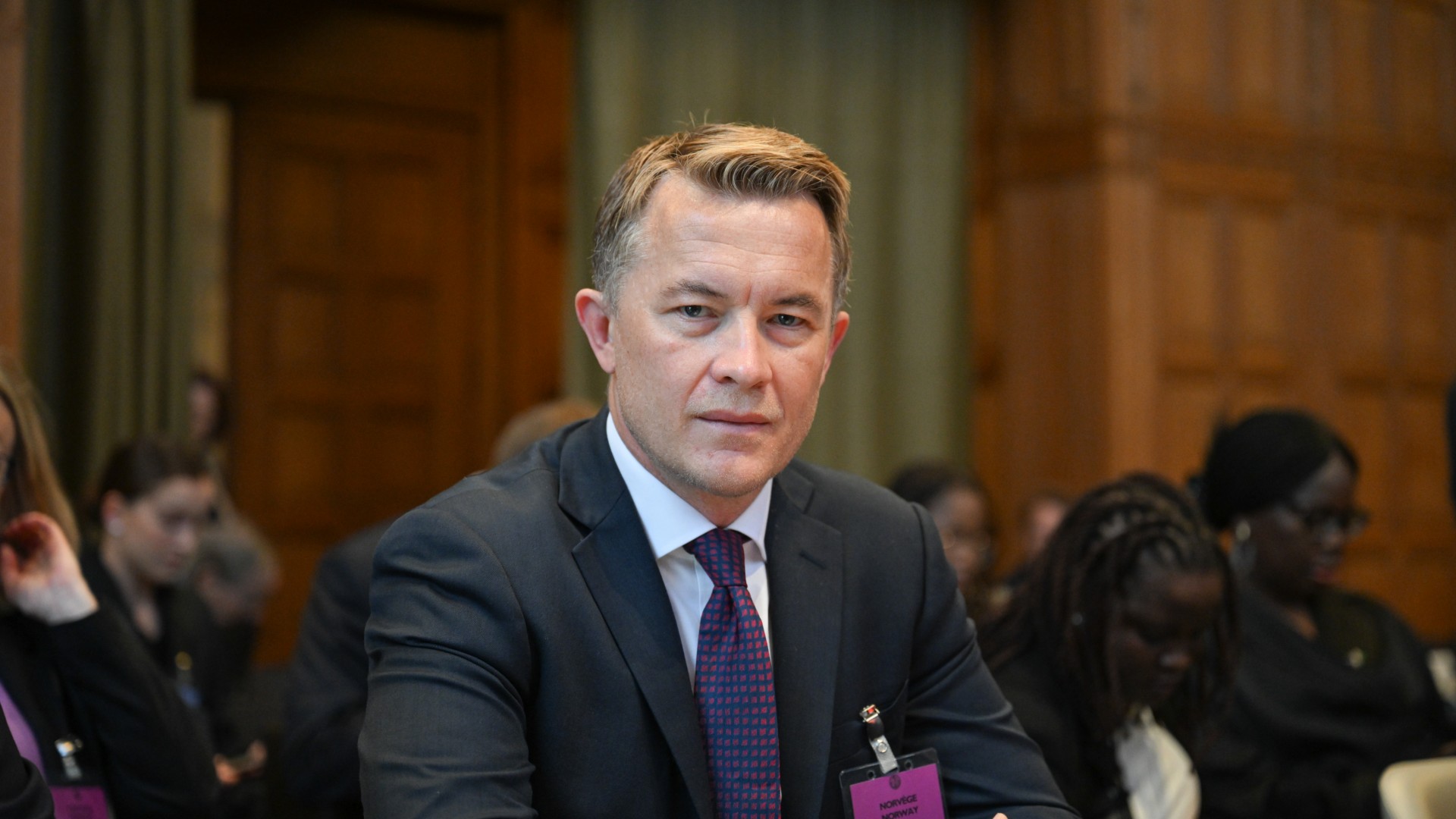Israels Gaza siege unconscionable and deeply illegal: Norway deputy foreign minister

Norwegian Deputy Foreign Minister Andreas Motzfeldt Kravik has denounced Israel’s siege on Gaza as “unconscionable and deeply illegal”, with aid unable to reach the Palestinian enclave for two months.
Kravik spoke on behalf of Norway before the International Court of Justice (ICJ) on Thursday, in hearings on Israel’s humanitarian obligations under international law.
The case is based on a request by the United Nations General Assembly in December, which Norway lobbied for after Israel banned the UN agency for Palestinian refugees, Unrwa.
“We first initiated this process in the UN, where we put forward a resolution where we asked the General Assembly to request the court to pronounce on Israel's obligations under international law to provide for humanitarian relief to Palestinians,” he told Middle East Eye after the court’s proceedings on Thursday.
“The backdrop here was the suffering that we're seeing on the Gaza Strip, especially, but also on the West Bank and the humanitarian blockade,” he said.
New MEE newsletter: Jerusalem Dispatch
Sign up to get the latest insights and analysis on Israel-Palestine, alongside Turkey Unpacked and other MEE newsletters
“We felt that that was not only unconscionable, but it was also deeply illegal,” he added.
“It's important to get the normative issue clarified. So we want the ICJ to pronounce on the legal side of things.”
On Friday, the court concluded five days of hearings, in which several states argued that Israel is in breach of its international legal obligations to facilitate the entry of aid to the population under its occupation.
The US on Wednesday disputed the majority opinion, arguing for an interpretation of international humanitarian law in favour of limiting such obligation due to military necessity and Israel's security.
In their oral intervention before the court, Norwegian diplomats argued that Israel has an obligation under international law to collaborate with the UN, international organisations and third states in the provision of relief to occupied Palestine.
“This can be achieved only by lifting the blockade, dramatically increasing the number and capacity of land crossing points and keeping them open,” Kravik told the court.
Failing to ensure the provision of relief would amount to a breach of the Palestinian people’s right to self-determination, argued Kristian Jervell, legal director at Norway's foreign ministry.
The ICJ case was prompted by Israel banning Unrwa in October, an event that sparked global outrage and calls for the country to be ejected from the UN.
The country was accused of violating the founding charter, particularly the privileges and immunities enjoyed by UN agencies.
Expected to be decided in late May or early June, it will be the third advisory opinion case since 2004 to be heard before the World Court in relation to Israel’s violations of international law.
Unrwa is the primary source of humanitarian support for an estimated 5.9 million Palestinian refugees in occupied Palestine and neighbouring countries.
This includes the provision of basic services such as education, food, medical care and the distribution of fuel. Its closure may lead to the collapse of the primary lifeline for Palestinians.
According to the organisation's latest situation report, since October 2023, Israel has killed at least 290 Unrwa staff members and carried out at least 830 attacks on the agency's premises and people sheltering in them.
Palestinian statehood
Norway is among 147 states that have recognised Palestinian statehood.
In April, a year after Norway's recognition of Palestinian statehood, Kravik announced the formal establishment of diplomatic relations with Palestine, with the appointment of Palestinian ambassador Marie Antoinette Sedin.
In addition to the ICJ case, Norway is also leading an international coalition for the two-state solution, along with Saudi Arabia and the EU, Kravik told MEE.
A UN conference on Palestinian statehood is scheduled to be held in New York from 2-4 June, based on a UN General Assembly resolution passed in December in support of the two-state solution.
French President Emmanuel Macron last month said that his country may recognise Palestinian statehood by the June conference, and the UK has said it is in discussions with France over the issue.
middleeasteye.net